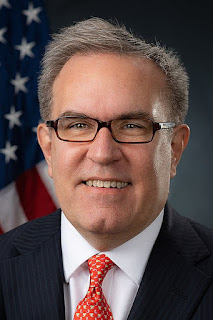How much economic damage does a ton of carbon pumped into the atmosphere really do? That's the question an international team of climate scientists and economists set out to answer on a country-by-country basis. While previous studies have suggested that poor countries are more vulnerable to climate change, these new results reveal the opposite--a large and complex economy like that of the US magnifies the impacts of a destabilized climate. It turns out that the US is especially vulnerable.
"It makes a lot of sense because the larger your economy is, the more you have to lose," says Kate Ricke, the study's lead author of the recent Nature Climate Change article. "Still, it's surprising just how consistently the U.S. is one of the biggest losers, even when compared to other large economies."
Other countries who will take major hits due to climate change include India, China and Saudi Arabia.
Ricke and her colleagues estimate that current levels of carbon emissions are already costing the US economy around $250 billion per year. That's nearly $2000 per US household. Even more worrisome, they point out, climate change doesn't just hit us on a year-by-year basis, it's likely to take an increasing chunk out of America's economic rate of growth. Like a ballooning interest rate on a mortgage, the costs don't just add up, they multiply.
When the researchers take this cumulative economic erosion into account, their estimates of the long-term impact of unchecked global warming and resulting climate change are up to ten times greater than current mainstream estimates, for example those of the US government.
The authors emphasize that these higher estimates of the economic costs of "business as usual" make it clear that it's in the selfish best interest of countries like the US with highly developed economies to take steps--such as a carbon tax--that would actually match the real-world costs and help rein in global warming and climate destabilization.
In an invited commentary, Frances Moore, an environmental economist at the University of California, Davis, writes:
"In other words, based on just their own self-interest, these countries should be acting unilaterally to dramatically cut GHG emissions. The fact that we do not see this yet suggests that damages are overestimated or costs are underestimated, that countries have not yet recognized the risk posed by climate change, or that sub-national political constituencies have been able to effectively block ambitious mitigation policies that would otherwise be in their national interest."
To those obstructionist political constituencies including, it appears, the entire Republican Party and our current president, this should be a clarion call to do what Kevin Conrad, representing Papua New Guinea, told the United States delegation to the Bali climate conference in 2008--"lead, follow, or get out of the way."
Some of the most obvious impacts to the US of a changing climate
Credit: Union of Concerned Scientists/NOAA
"It makes a lot of sense because the larger your economy is, the more you have to lose," says Kate Ricke, the study's lead author of the recent Nature Climate Change article. "Still, it's surprising just how consistently the U.S. is one of the biggest losers, even when compared to other large economies."
Other countries who will take major hits due to climate change include India, China and Saudi Arabia.
Ricke and her colleagues estimate that current levels of carbon emissions are already costing the US economy around $250 billion per year. That's nearly $2000 per US household. Even more worrisome, they point out, climate change doesn't just hit us on a year-by-year basis, it's likely to take an increasing chunk out of America's economic rate of growth. Like a ballooning interest rate on a mortgage, the costs don't just add up, they multiply.
When the researchers take this cumulative economic erosion into account, their estimates of the long-term impact of unchecked global warming and resulting climate change are up to ten times greater than current mainstream estimates, for example those of the US government.
The authors emphasize that these higher estimates of the economic costs of "business as usual" make it clear that it's in the selfish best interest of countries like the US with highly developed economies to take steps--such as a carbon tax--that would actually match the real-world costs and help rein in global warming and climate destabilization.
In an invited commentary, Frances Moore, an environmental economist at the University of California, Davis, writes:
"In other words, based on just their own self-interest, these countries should be acting unilaterally to dramatically cut GHG emissions. The fact that we do not see this yet suggests that damages are overestimated or costs are underestimated, that countries have not yet recognized the risk posed by climate change, or that sub-national political constituencies have been able to effectively block ambitious mitigation policies that would otherwise be in their national interest."
To those obstructionist political constituencies including, it appears, the entire Republican Party and our current president, this should be a clarion call to do what Kevin Conrad, representing Papua New Guinea, told the United States delegation to the Bali climate conference in 2008--"lead, follow, or get out of the way."





